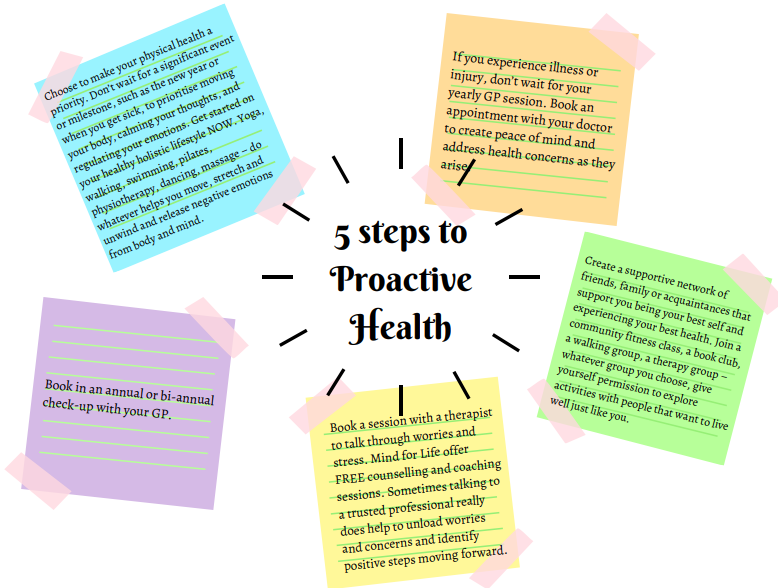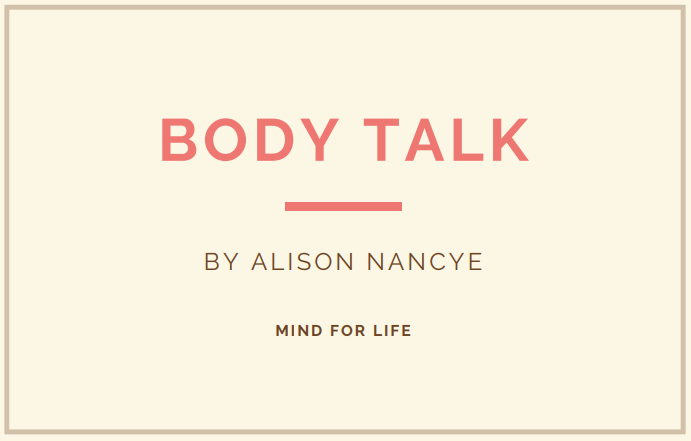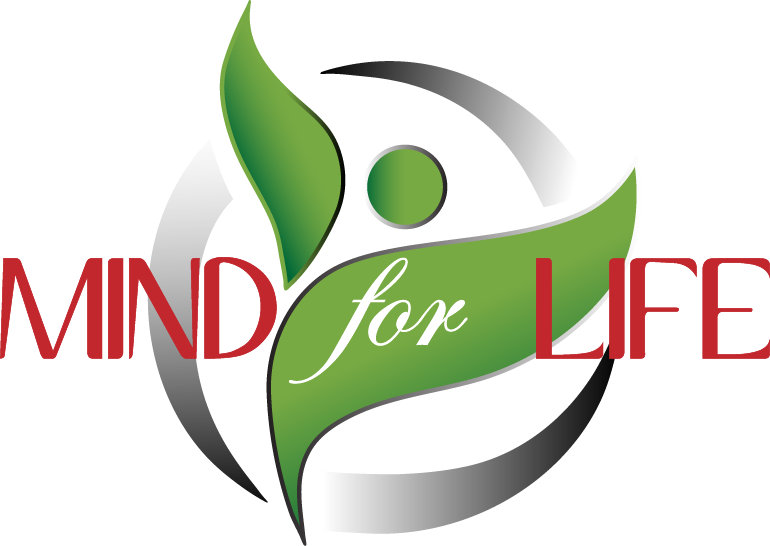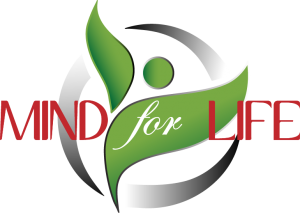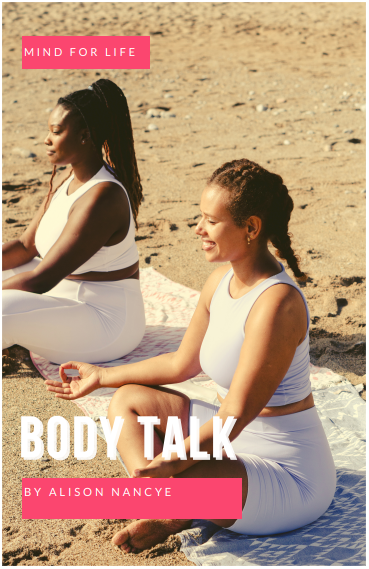
Our body constantly communicates with our mind. It tells us when we’re hungry, when we’re tired, and when we’re in physical pain. It also tells us when we’re stressed, over worked, and experiencing emotional pain. Our body lets us know when anxiety, anger, or avoidance habits impact our physical, emotional and mental health. Our body really does talk to us, we just need to listen.
Many of us suppress stress because we either don’t want to or don’t know how to address the source of the stress. Given stress is one of the leading causes of illness, we simply can’t avoid not dealing with our stress at some point, whether it’s in real time or in the future.
Our mind may not want to face it, our heart may not want to feel it, but our body will most certainly speak in volumes if we let stress fester. Our body catches up with emotional and cognitive stress and physically stalls or stop us to force us to deal with our stress.
LISTEN TO YOUR BODY
Identifying stress signals, which become evident through illness or injury, is an important first step in recognising how our worrying mind or anxious emotions are affecting our health. Physical sources of stress can affect our immune system, cause high or low blood pressure, result in headaches, shoulder, chest or back pain, and create sleep disorder.
All of these physical symptoms can be manifested through stress. If we don’t listen to our body’s messages of the impact of stress, the unhealthy living cycle continues and becomes a bigger source of stress.
An article published by NIB (2021), stated that “the majority of Australians feel stress impacts their physical health (72%) and mental health (64%) but very few reported seeking professional help.” Stress is a normal part of everyday life but ongoing stress, untreated, can cause life threatening and debilitating setbacks for our physical, emotional and mental wellbeing.
Not dealing with issues as they arise or allowing ourselves to be supported by professionals who specialise in therapeutic wellbeing, may not only affect us as individuals but also create a ripple effect for the people in our community – personal and professional.
ACKNOWLEDGING THE HEALTH IMPACT OF OUR LIFE CHOICES
Once we’ve started to notice the signals of stress occurring in our body, whether it’s a reoccurring backache, sprained ankle, or perhaps something more critical like cancer or a stroke, we can begin the work of healing holistically.
We can start to look at the food we eat and how our body responds to it. We can start to observe whether the content we are watching, reading and engaging with is toxic or healthy. We can start to create discernment about healthy and unhealthy relationships with ourselves and others.
Living well in body and mind, really is about self-awareness – deep, honest self-study, that allows us to honour ourselves holistically.
STEPS TO HOLISTIC HEALTH
It’s important as we step on our path to self-healing and wellbeing, that we do not give ourselves a hard time if we’re struggling with health setbacks.
Acknowledging the changes that need to be made is an important step in the right direction towards holistic health. Once you’ve taken that step of self-awareness, take a proactive approach to improving and maintaining your physical, emotional and mental health.
MIND FOR LIFE RESOURCES
Counselling and Coaching Services
There are many resources available online and in person to get the support you need when you’re feeling overwhelmed, overloaded or over it. Mind for Life offer FREE counselling and coaching services. Make an enquiry or book your FREE counselling or coaching session with one of our Holistic Health Practitioners.
Further Resources:
The Impact of Stress in Australia
https://www.nib.com.au/the-checkup/impact-of-stress-in-australia
Lifeline – Phone 13 11 14
https://www.lifeline.org.au
Black Dog Institute
https://www.blackdoginstitute.org.au
Head to Health
https://www.headtohealth.gov.aup
